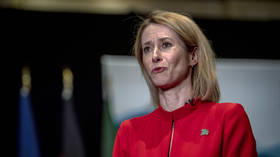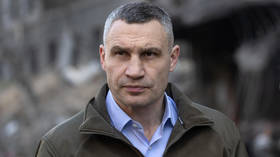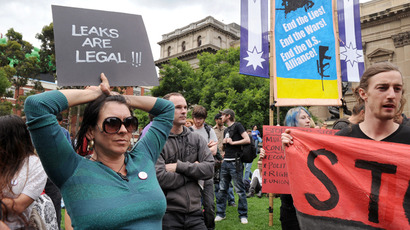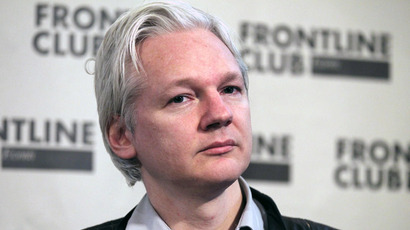Australian lawyer to run ‘serious’ Assange senate campaign
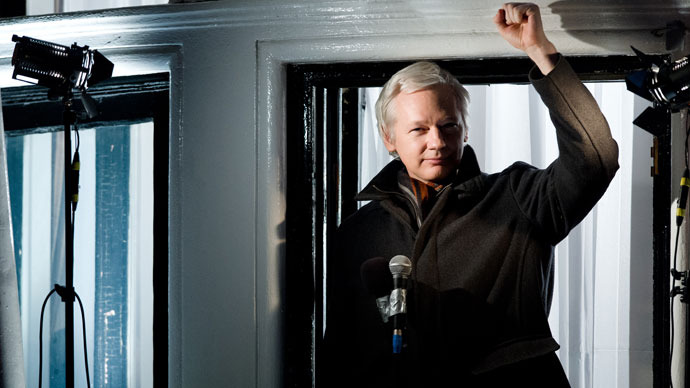
WikiLeaks founder Julian Assange has appointed former Australian Republican Movement head, lawyer Greg Barns, to run his campaign for a seat in Australia's upper house of parliament.
Assange’s brand new political party, set up as part of its
creator’s bid to become an Australian senator in September 2013
elections representing the state of Victoria, has been open for
membership since March 30.
The party must enlist 500 dues-paying members to officially
register with the Australian Electoral Commission.
"It's most definitely a serious campaign," Barns, a
high-profile political campaigner, told Australian radio, noting
that the party will “offer a refreshing change from the
Australian government culture of secrecy."
According to Barns, Assange's party has already won support from
local philanthropist and former Citibank executive Philip
Wollen.
WikiLeaks first revealed that the former computer hacker Assange
was planning to run for a seat in the 76-seat Australian Senate a
year ago. He submitted his application to the Australian Electoral
Commission and had his political party incorporated in Australia in
February.
The 41-year-old whistleblower, who is an Australian citizen, has
been holed up in London's Ecuadorian embassy for nine months, after
claiming asylum to avoid extradition to Sweden, where he is wanted
for questioning on sexual assault allegations.
Assange fears that once in Sweden, he could be extradited to
America where, according to his lawyers, he is most likely to face
trial and possibly even the death penalty for the release of
thousands of classified US diplomatic cables, some of them about
the wars in Iraq and Afghanistan.
It’s hoped that if Assange is elected, the chances are that the US
and the UK could stop their persecution of him so as not to provoke
a diplomatic row. Should he win a senate seat, Assange’s freedom of
speech would be protected by Australia's parliamentary privilege
rules.
It’s believed that chances are fairly small for Assange to win a
senate seat, given that he would need to attract nearly 15 per cent
of votes in Victoria.
However, even if elected as an Australian senator, Assange may
still be unable to be physically present at the Australian upper
house and take his seat from July 1, 2014, because he might still
be trapped in London’s Ecuadorean embassy. The UK authorities have
promised to detain him the minute he steps foot outside of the
embassy in light of the European Arrest Warrant issued against
him.
The WikiLeaks founder has not ruled out the possibility that, if he
happens to win the election, but is unable to return to Australia,
a WikiLeaks Party nominee could fill his seat in the senate.
On April 1, WikiLeaks announced a press conference, set to take
place next Monday, and generating rumors about its possible
connection to Assange’s political party.
The new “Special Project K” was publicized on Twitter where a
countdown to the event, planned to be held in the National Press
Club in Washington on 8 April, has been installed.





